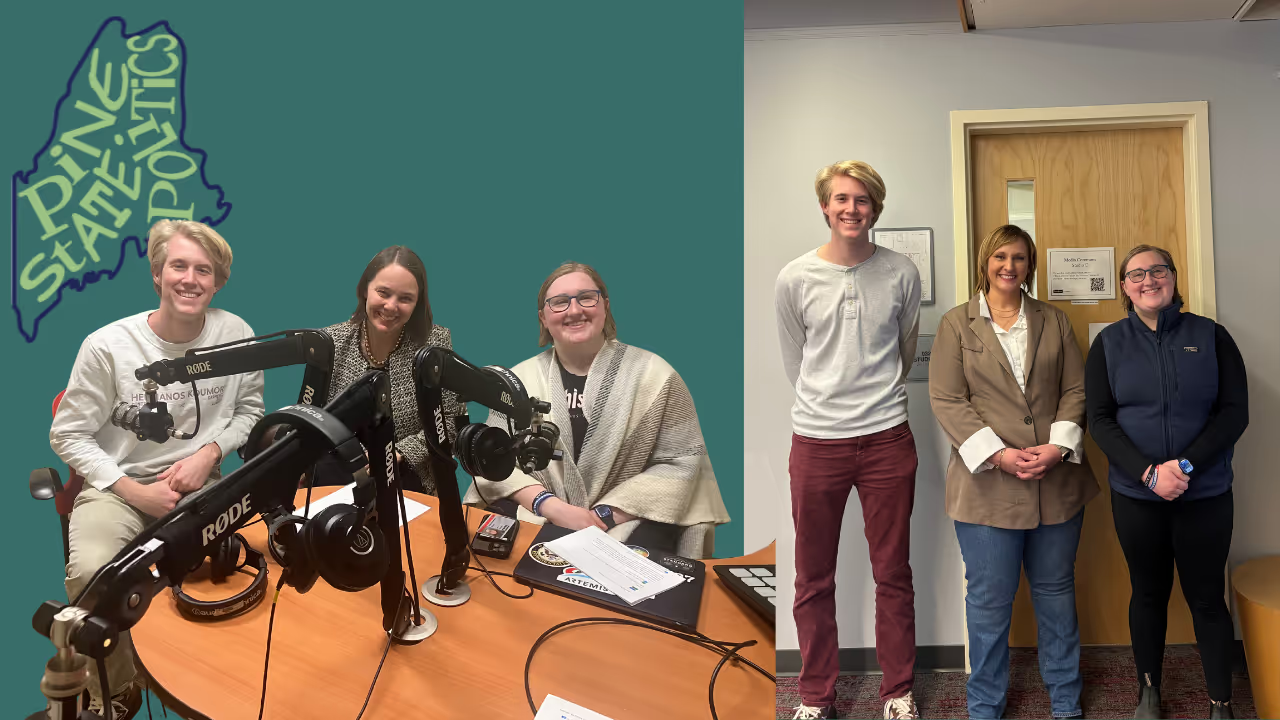
Bowdoin College students Natalie Emmerson and Larsen Van Horn recognized an information gap in voters’ understanding of the political system and electoral processes after working on a U.S. Senate campaign their freshman year. Brought together by a shared passion for public service and civic education, the two created Pine State Politics: In Session, an education podcast that explores questions about how our system of government operates and how elections work in Maine.
In a conversation with The Democracy Group, Natalie shared the motivation behind their educational content and how her understanding of Maine politics deepens through her work on the podcast.
Tell me more about Pine State Politics.
Natalie: My co-host Larsen and I describe the podcast as the mechanics of elections. We’re getting behind the scenes and asking questions about how everything works. It’s based on a love of the process and a curiosity about how everything works, removed from any partisanship.
There’s this whole level of nuance and information that you only come to understand if you’re doing political work. There are unspoken rules and processes for politics, which is something that impacts all of us vividly, but the only way to learn a lot of these — because it’s not written and taught — is to become a professional and answer those questions as you go along. That’s obviously not a possibility for everyone, for a lot of people. We wanted to create a tool where we answered those questions, or we asked those questions that also broke down barriers of accessibility, especially for other students and people our age who want to get involved with this process but don’t know where to start.
How does being a fifth-generation Mainer impact the way you approach your content?
Natalie: Even the term “Mainer” alludes to the fact that it’s an identity. Being from Maine, one of my favorite sayings is “Maine is one small town.” So that impacted the way we approached the podcast and the way that we were able to contact the people we were able to. The podcast was made with that community aspect inherent in every aspect of what we did.
One of the key things was seeing the community of Maine come out through the podcast. When we were starting, we wanted to have Senator Angus King or Secretary William Cohen on the podcast. Of course, that’s a bit of a long shot. These are U.S. government officials; they’ve got a lot of prestige. We started out with this idea and it was pretty intimidating, but we reached out and got enormously positive responses. I think that proved that Maine doesn’t just talk about being this family, we come through for each other and there was a willingness to be like, “We’re going to help these students, we’re going to prioritize this youth involvement, and we’re going to help support it.”
How has producing the podcast deepened your understanding of Maine and its politics?
Natalie: Maine still votes rather independently. We split our electoral votes almost every election, or at least we have for the last three cycles. We have one of two independent senators in the U.S. Senate. We have a Republican senator, but both of our Congresspeople are Democrats. We have a Democratic governor.
There’s this real “Vote for the person, not for the party” mentality in Maine. I think because of that, we were able to reach out to people on both sides of the aisle. While the questions we ask are inherently nonpartisan and our content is bipartisan, Larsen and I have our own political affiliations and biases and it seems dishonest (and honestly impossible) to hide those. But with that knowledge, because we reached out in good faith and we had this project that we wanted to make in good faith, people from both sides of the aisle met us in good faith and were willing to come on the podcast.

Natalie and Larsen sat down with veteran lobbyist Peter Madigan and Maine's Secretary of State Shenna Bellows to discuss the differences between federal and state government. This first episode takes listeners through the process of how our government works, while being an amazing introduction to Pine State Politics.
Subscribe to receive a biweekly collection of the hottest podcast episodes from the network, upcoming special events, expert features, and news from your favorite shows.
Subscribe to our NewsletterThis is Jessie Nguyen, The Democracy Group's Community Manager. Here are some of my favorite podcasts this week, check them out!

Cartoons for Democracy is showing voters how humor can be a powerful tool of resistance. The nonprofit sends out podcasts with political cartoons in an effort to create change in upcoming elections. Listen to their story!

Rabbi Michael Holzman is a spiritual leader of the Northern Virginia Hebrew Congregation and founder of the Rebuilding Democracy Project. At the intersection of faith, politics and civic life, he shared how religious communities can serve as training grounds for civic engagement.
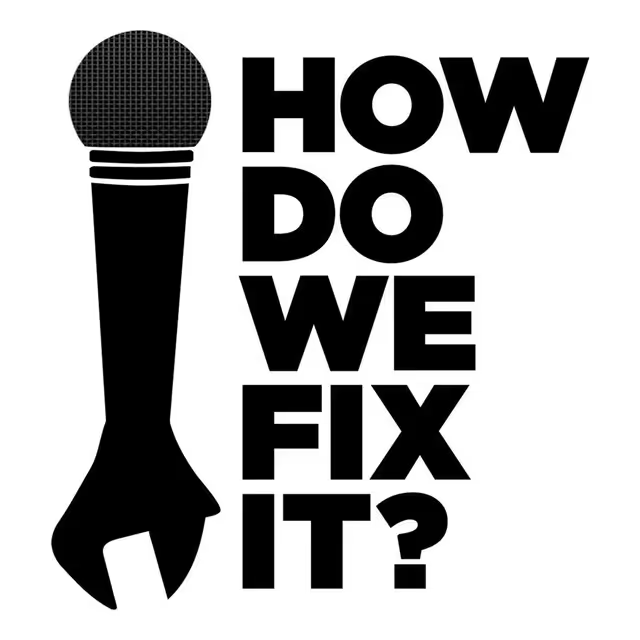
Braver Angels volunteers earlier this year set out to reach across the political divide on a nine-day bus tour around rural Minnesota, where they talked with people across the political spectrum. Their takeaways? We can and should be able to disagree better. Give this episode a listen!
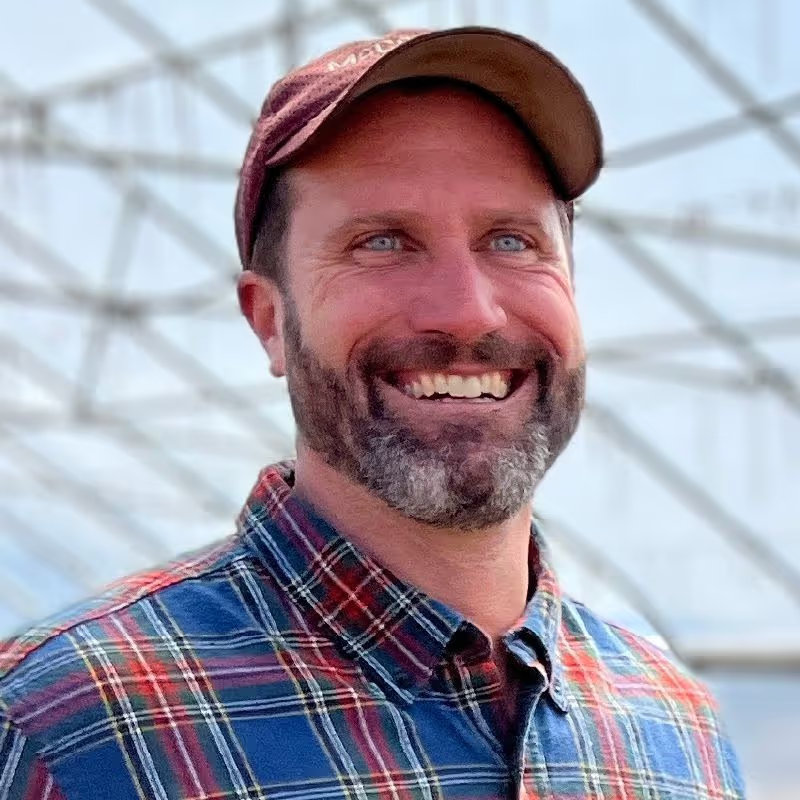
Bill Pluecker is a farmer, small business owner, educator and independent representative for Maine's 44th District. He's been selling vegetables and substitute teaching locally for several years. Pluecker serves as House Chair on the Agriculture, Conservation and Forestry Committee.
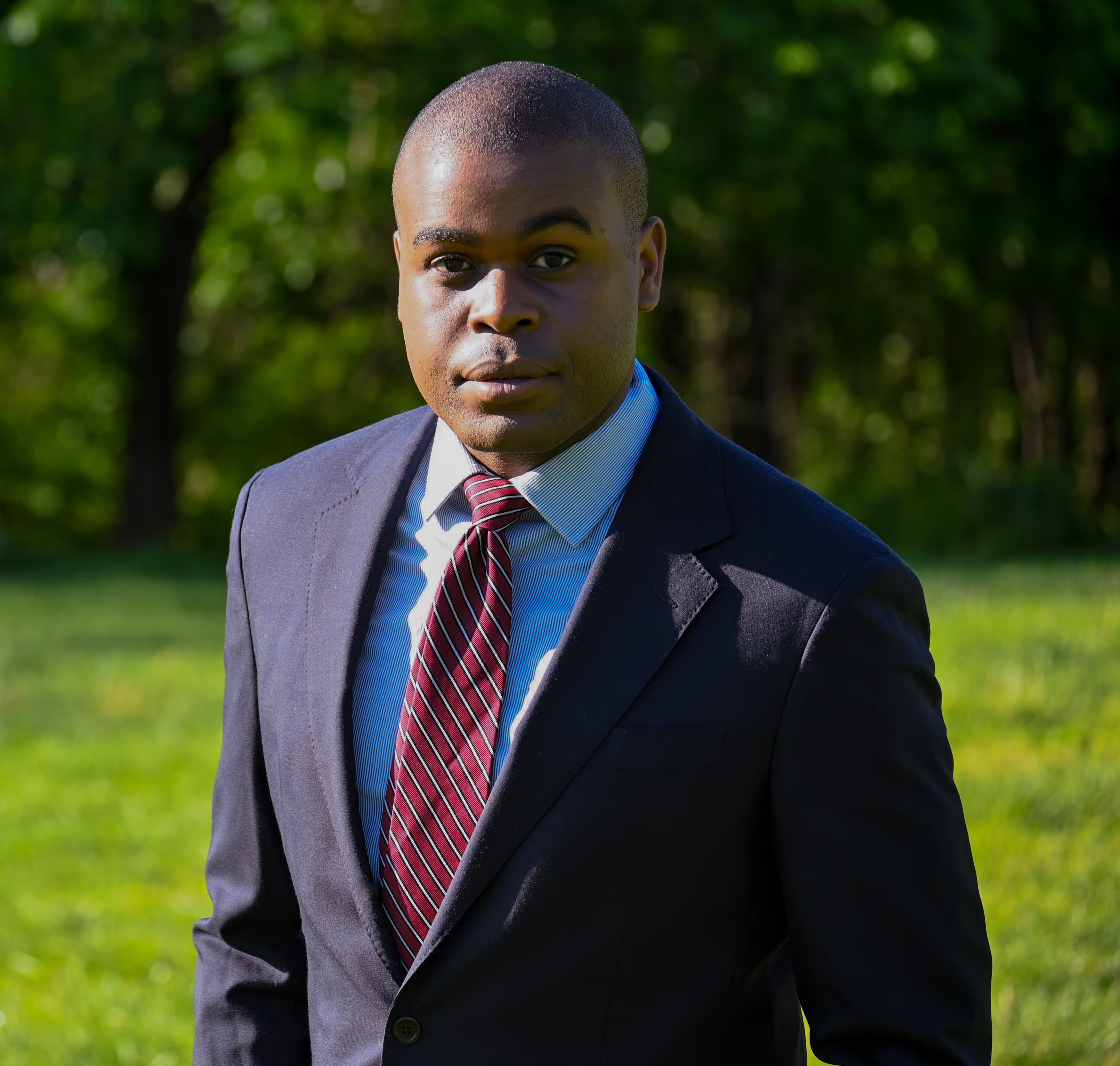
Osita Nwanevu is a journalist and a fellow at the Roosevelt Institute. He is a contributing editor at The New Republic and a columnist at The Guardian. Nwanevu's first book, The Right of the People: Democracy and the Case for a New American Founding, was published last month.
Subscribe to receive a biweekly collection of the hottest podcast episodes from the network, upcoming special events, expert features, and news from your favorite shows.
Subscribe to our Newsletter.png)
We kickstart the year with the exciting release of our fall 2025 fellows' podcasts and their inaugural episodes!
Read Post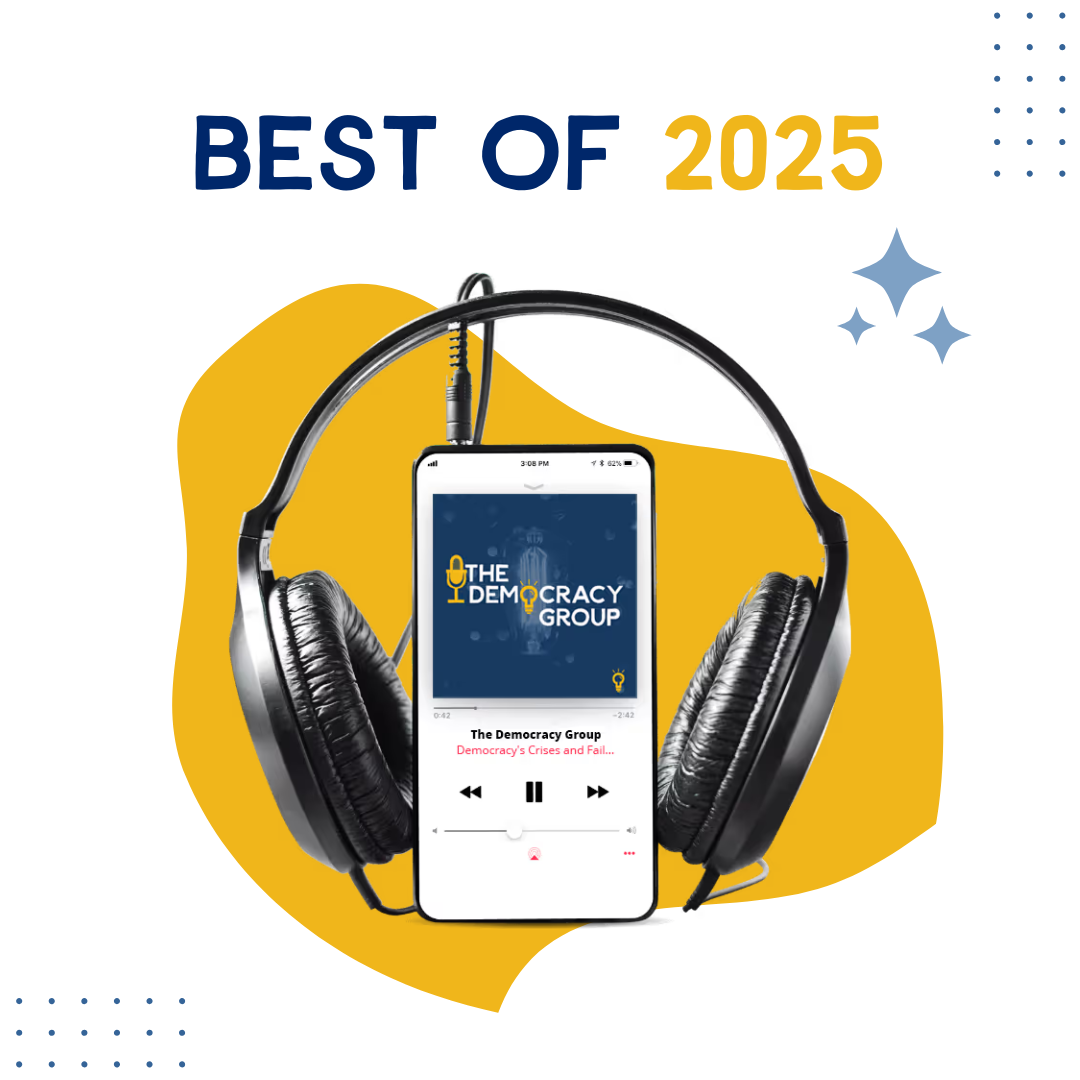
The Democracy Group's Best Of 2025 series is back for another year!
Read Post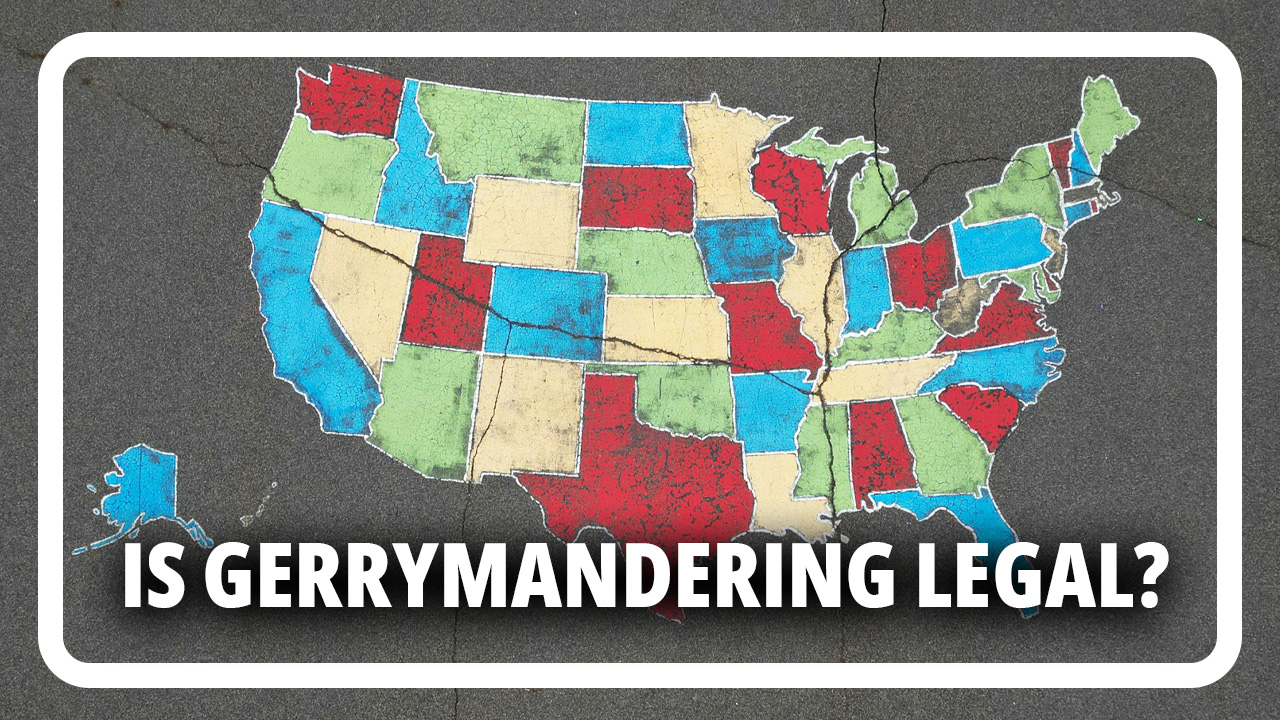
Is Gerrymandering Legal? Learn what gerrymandering is, how it shapes elections before votes are cast, and what citizens can do to protect democracy from unfair maps.
Read Post